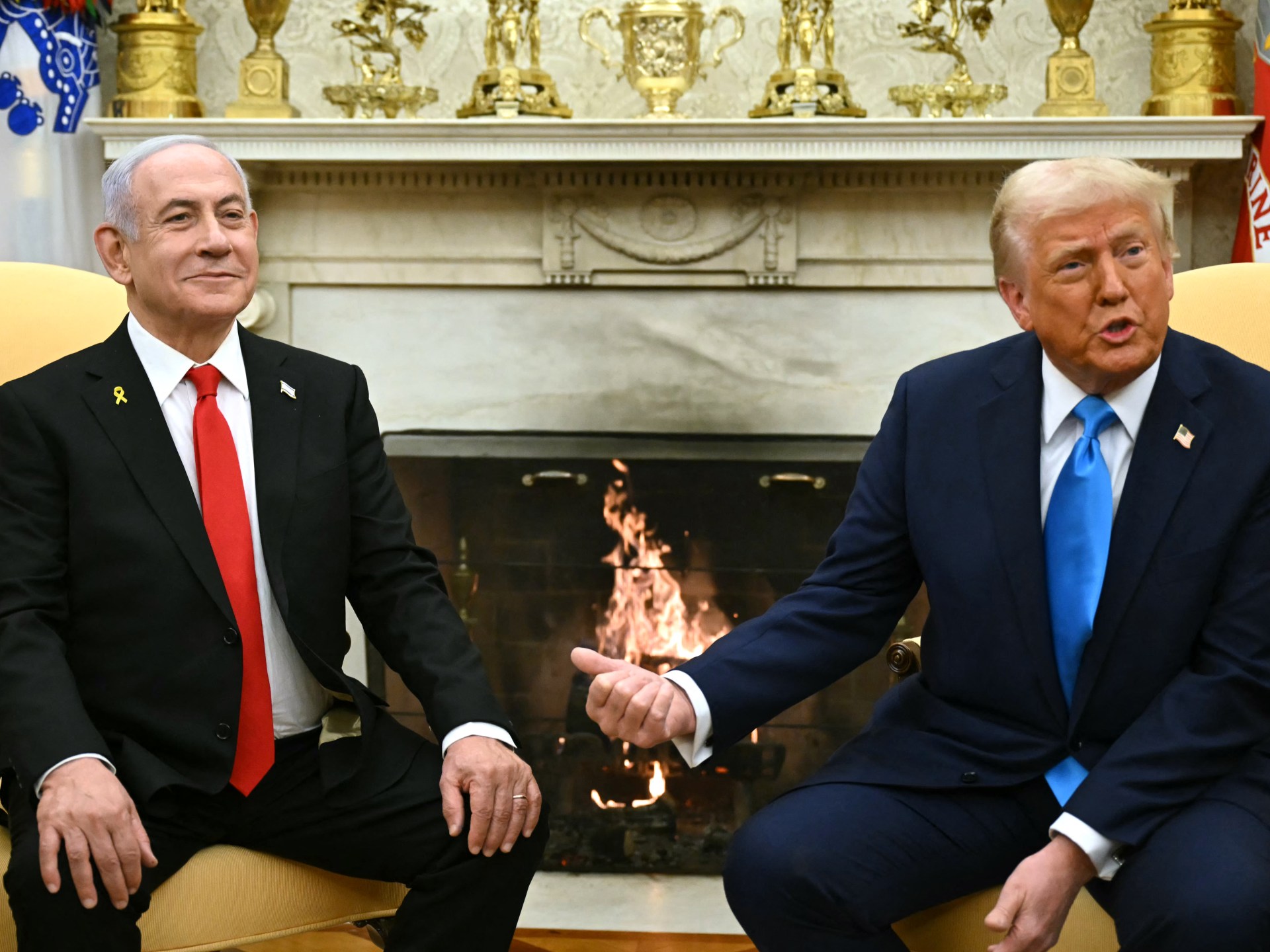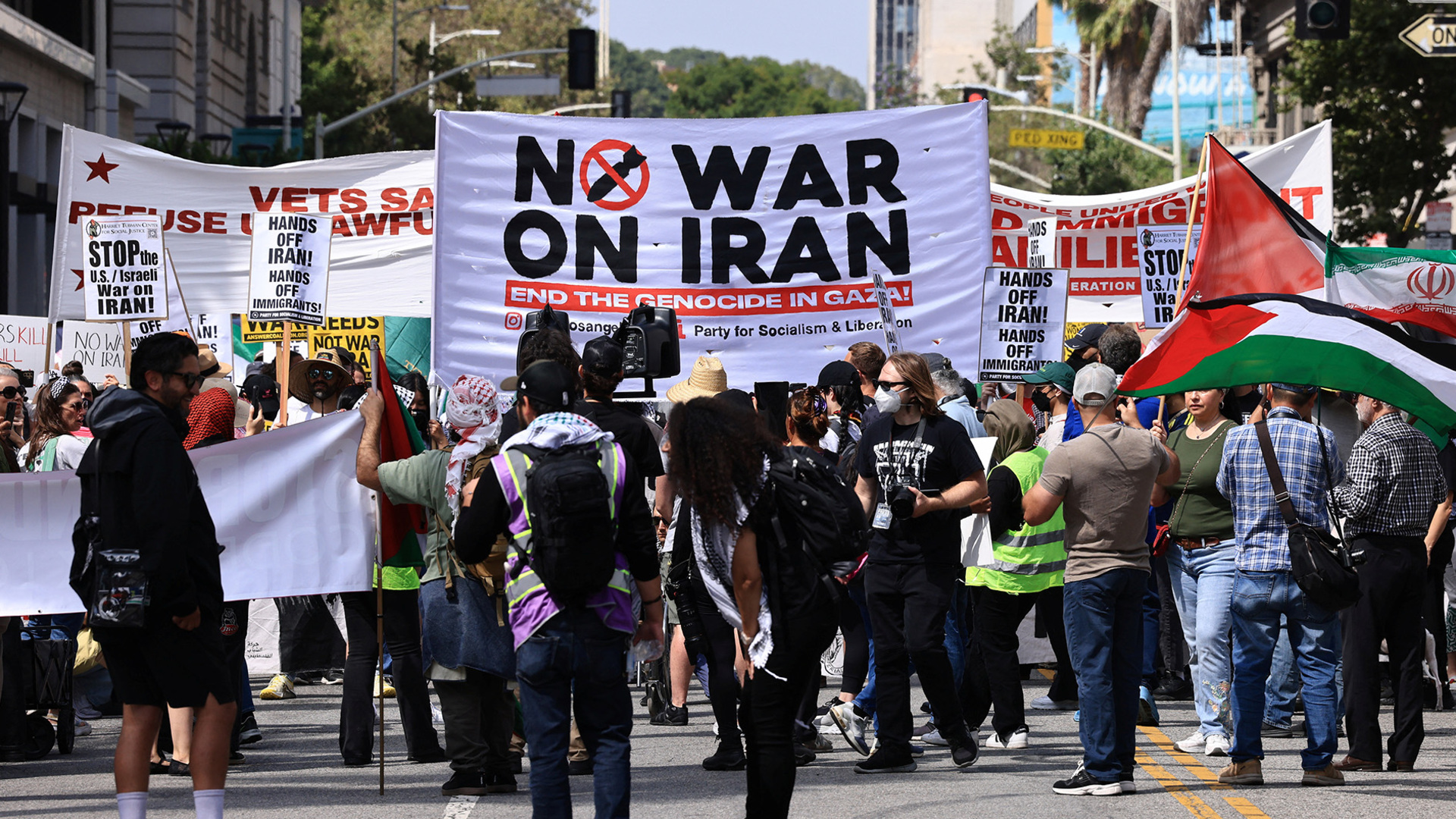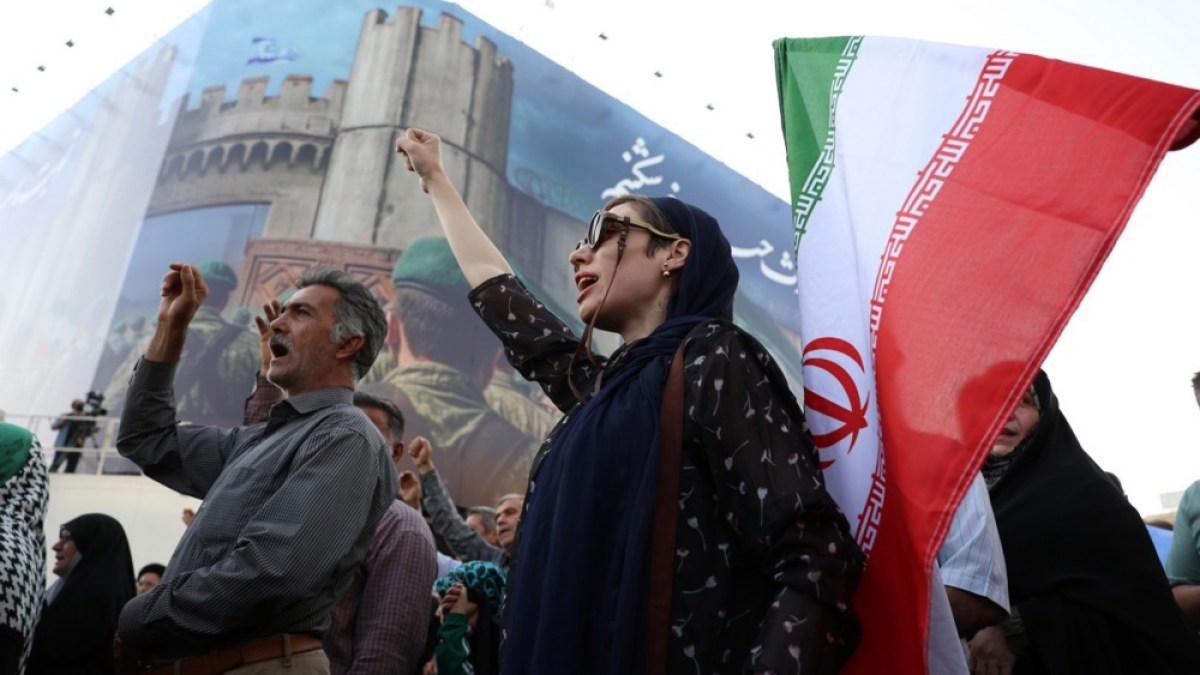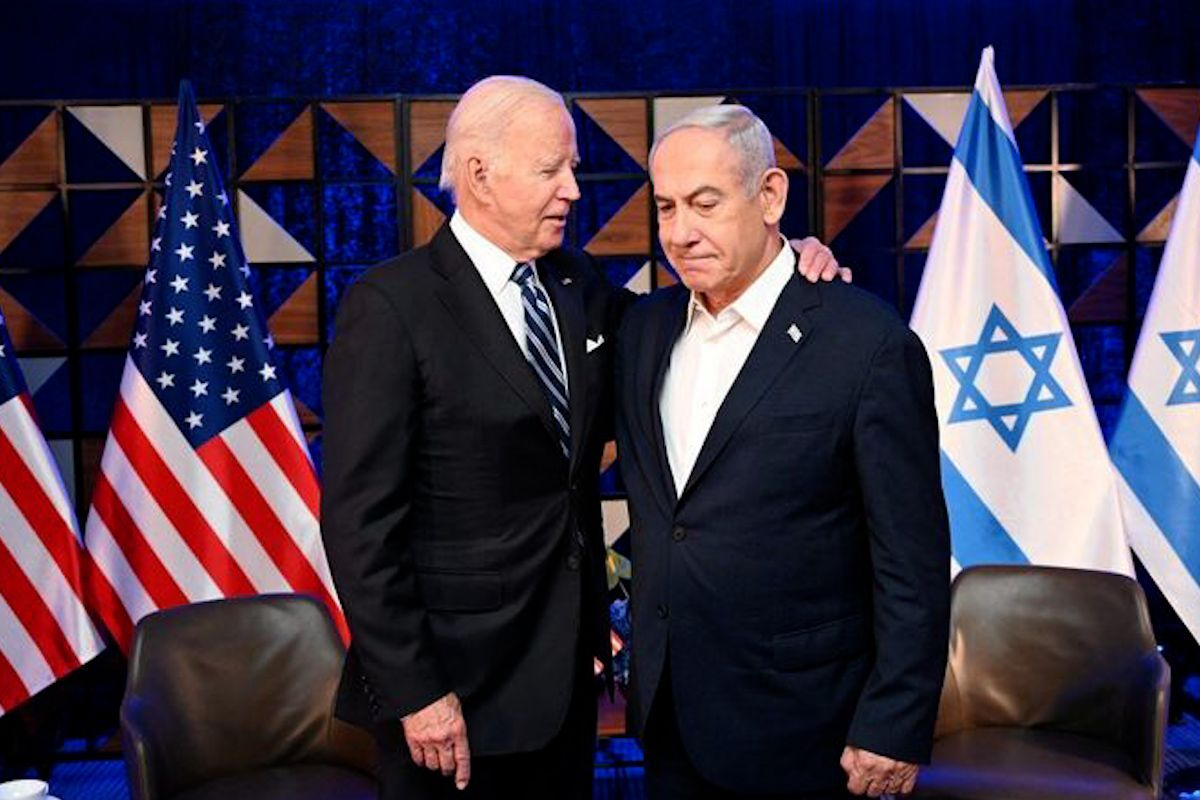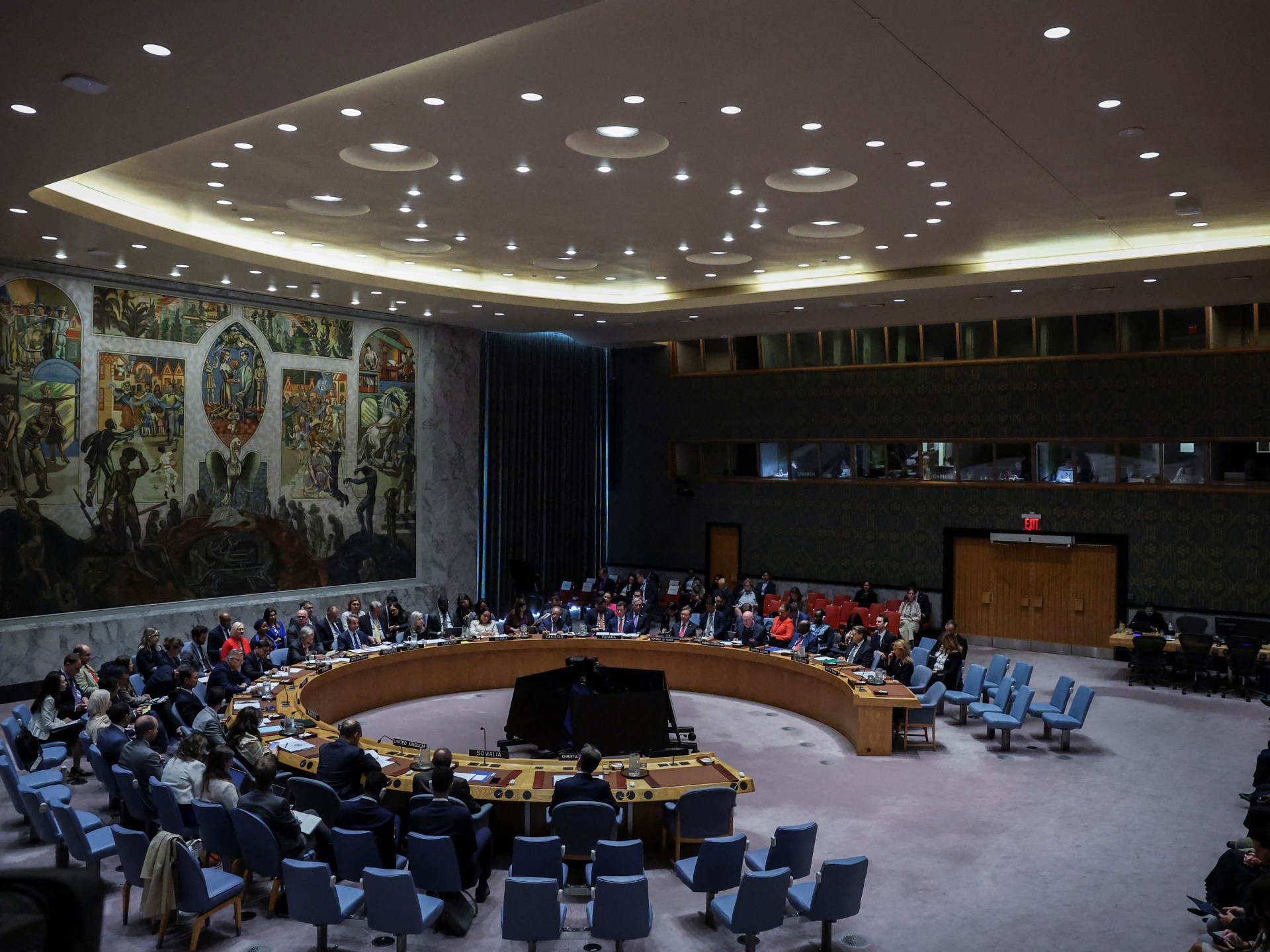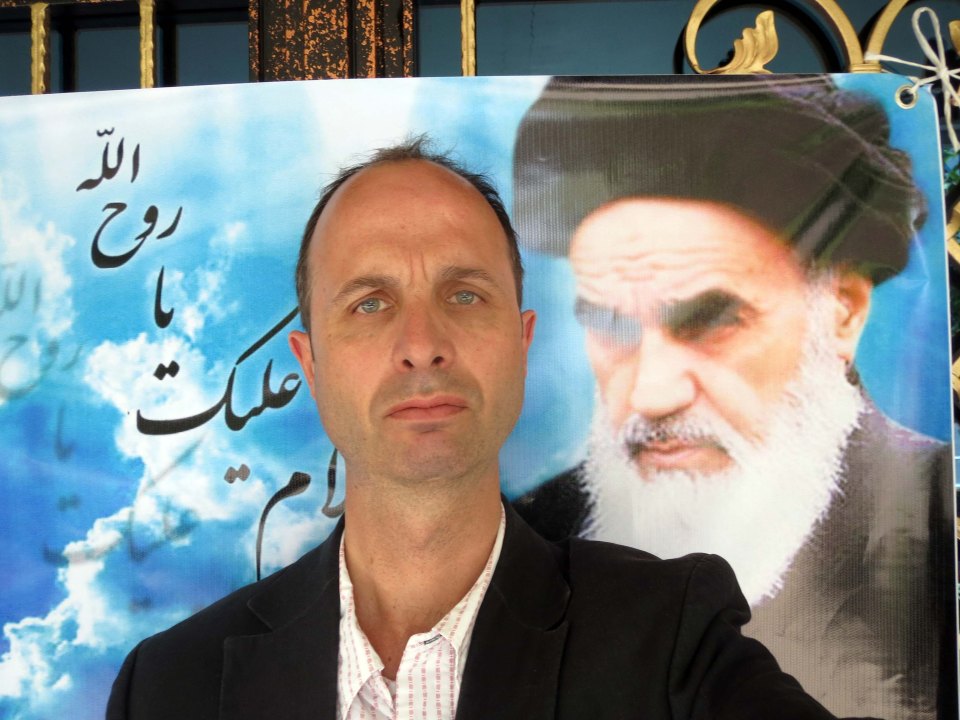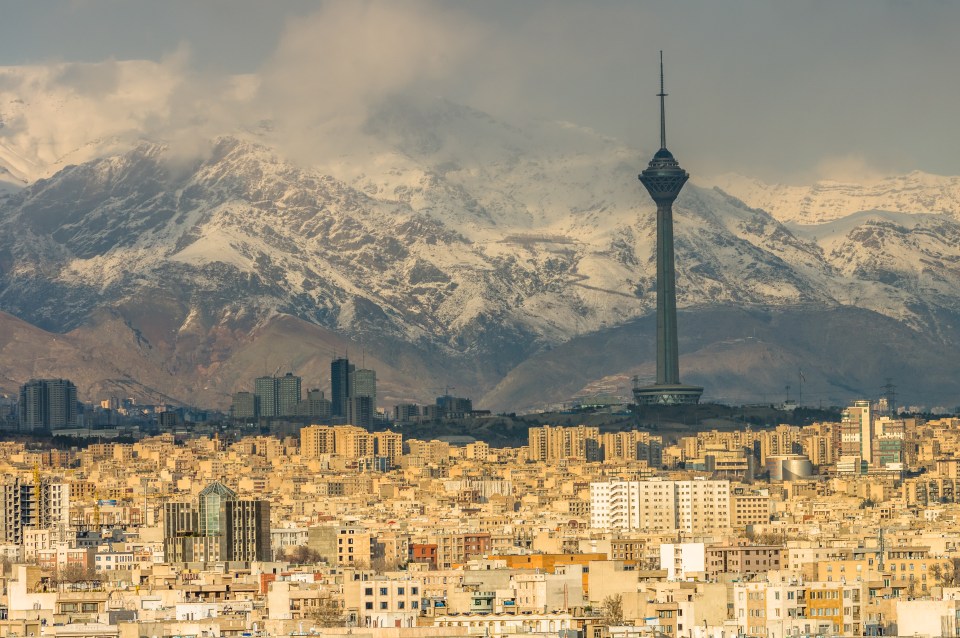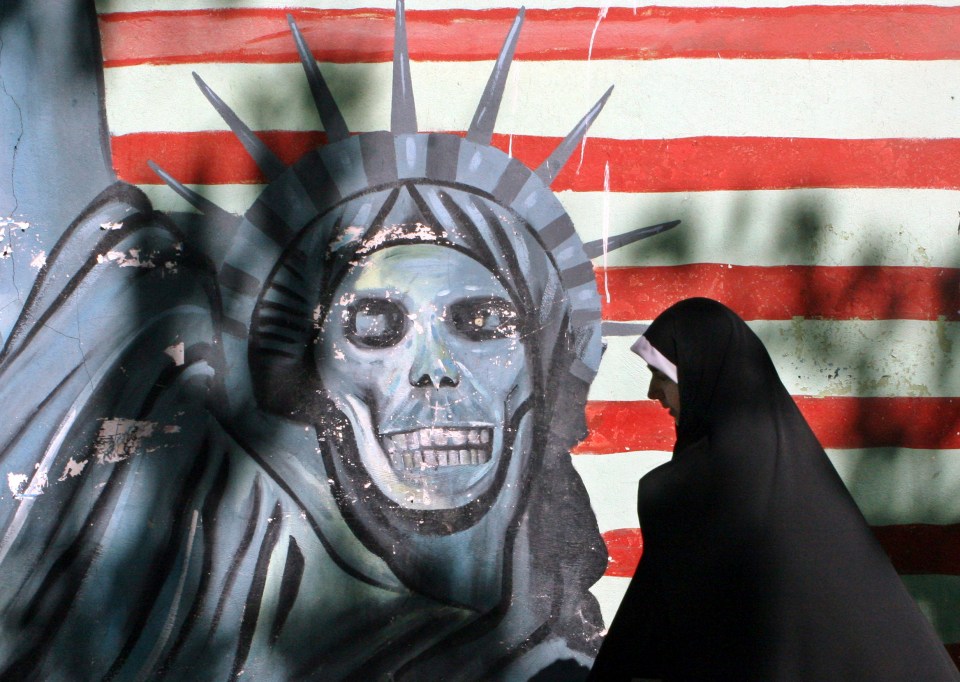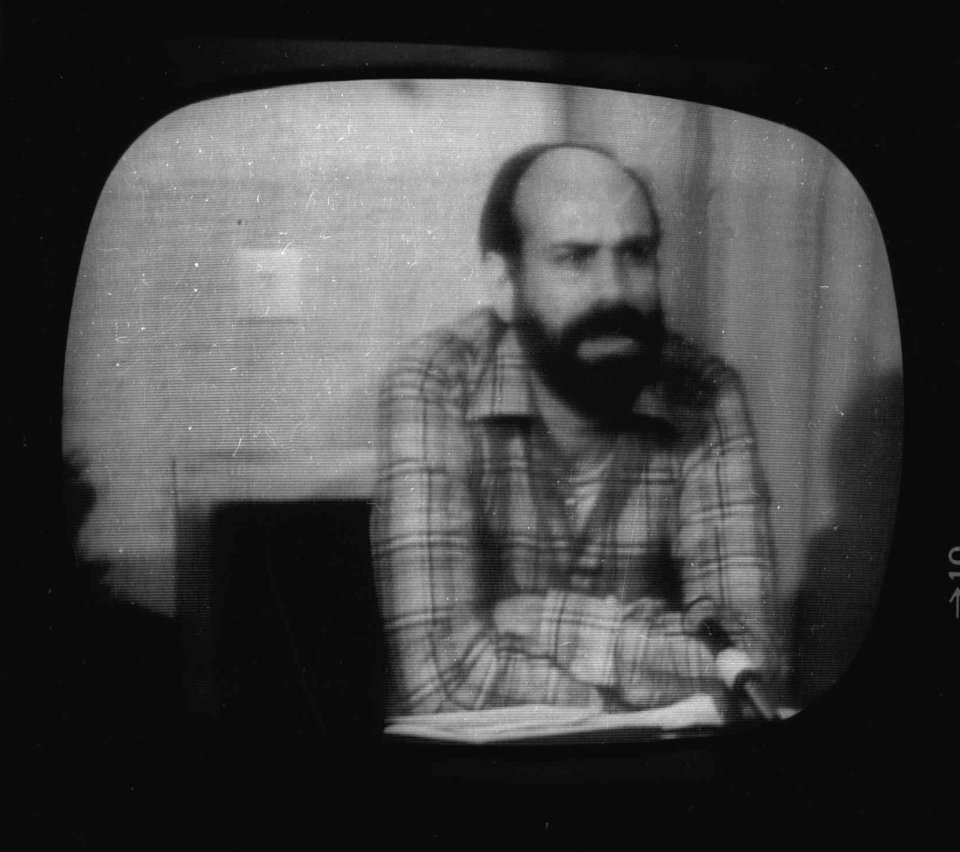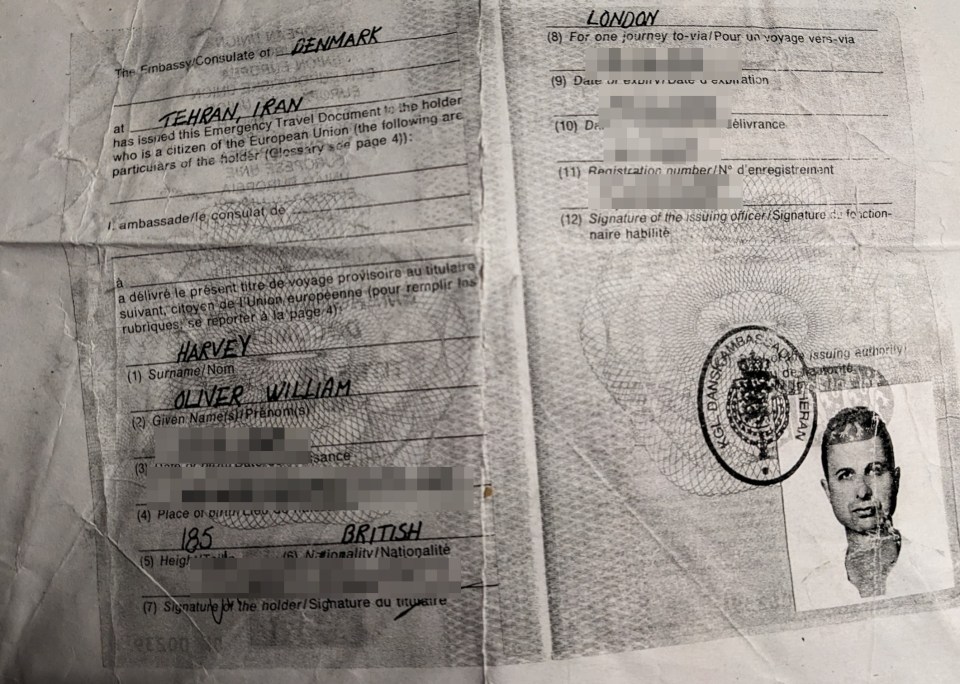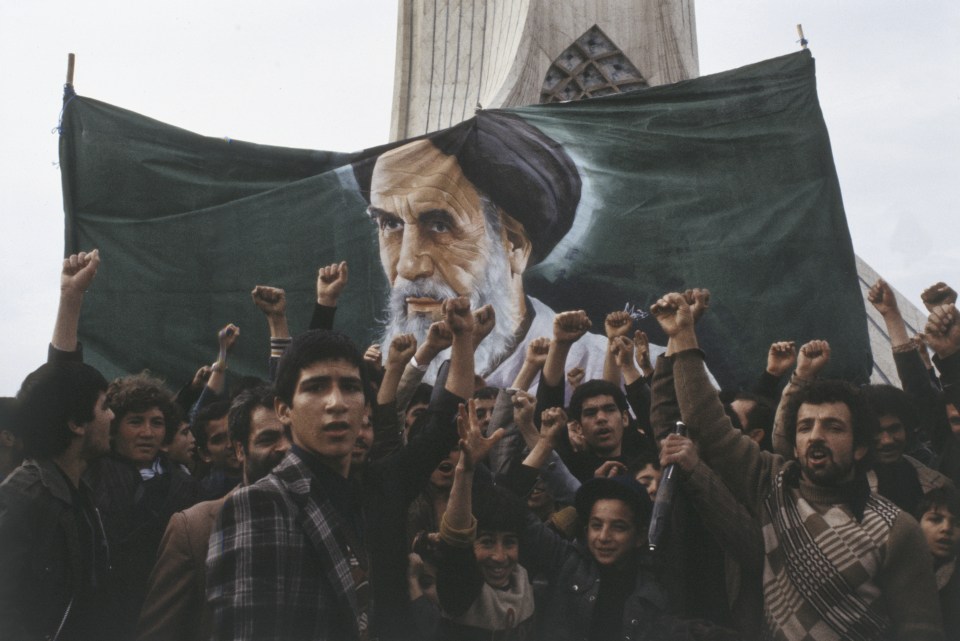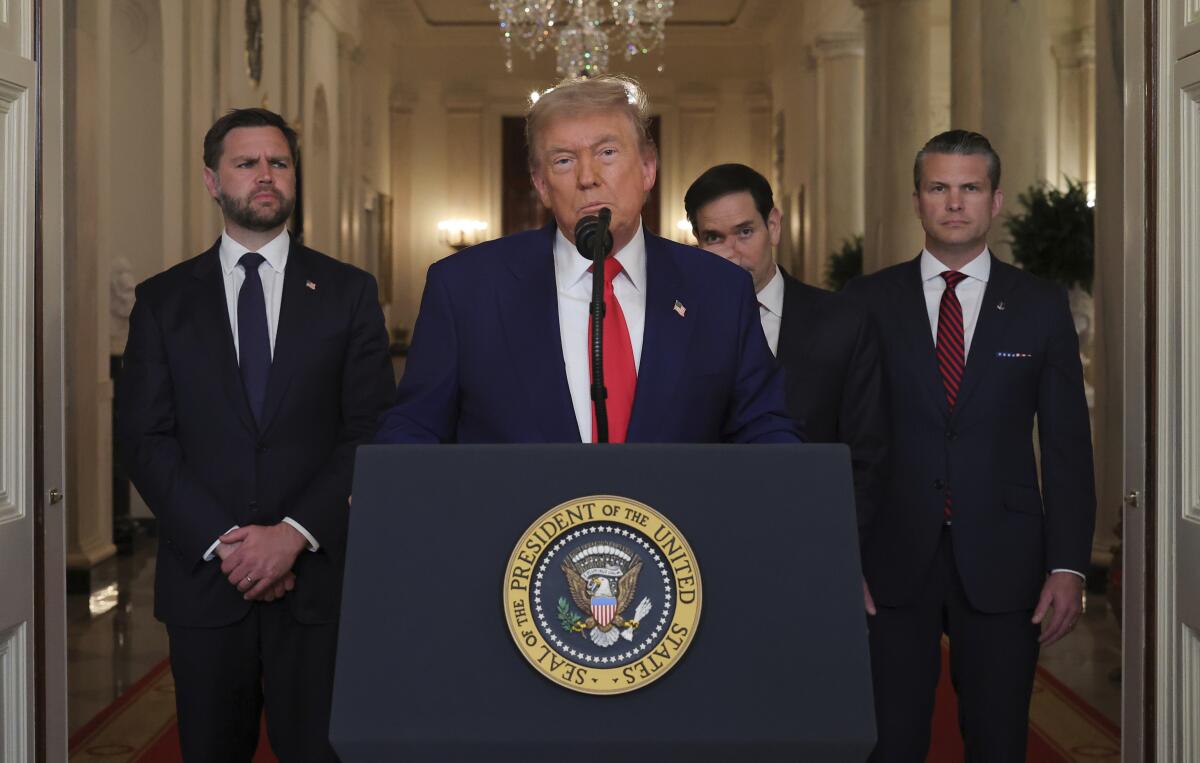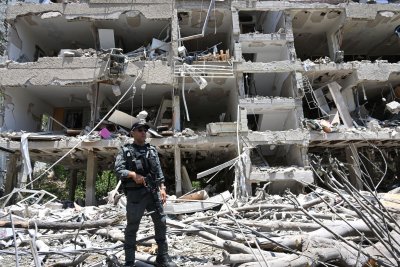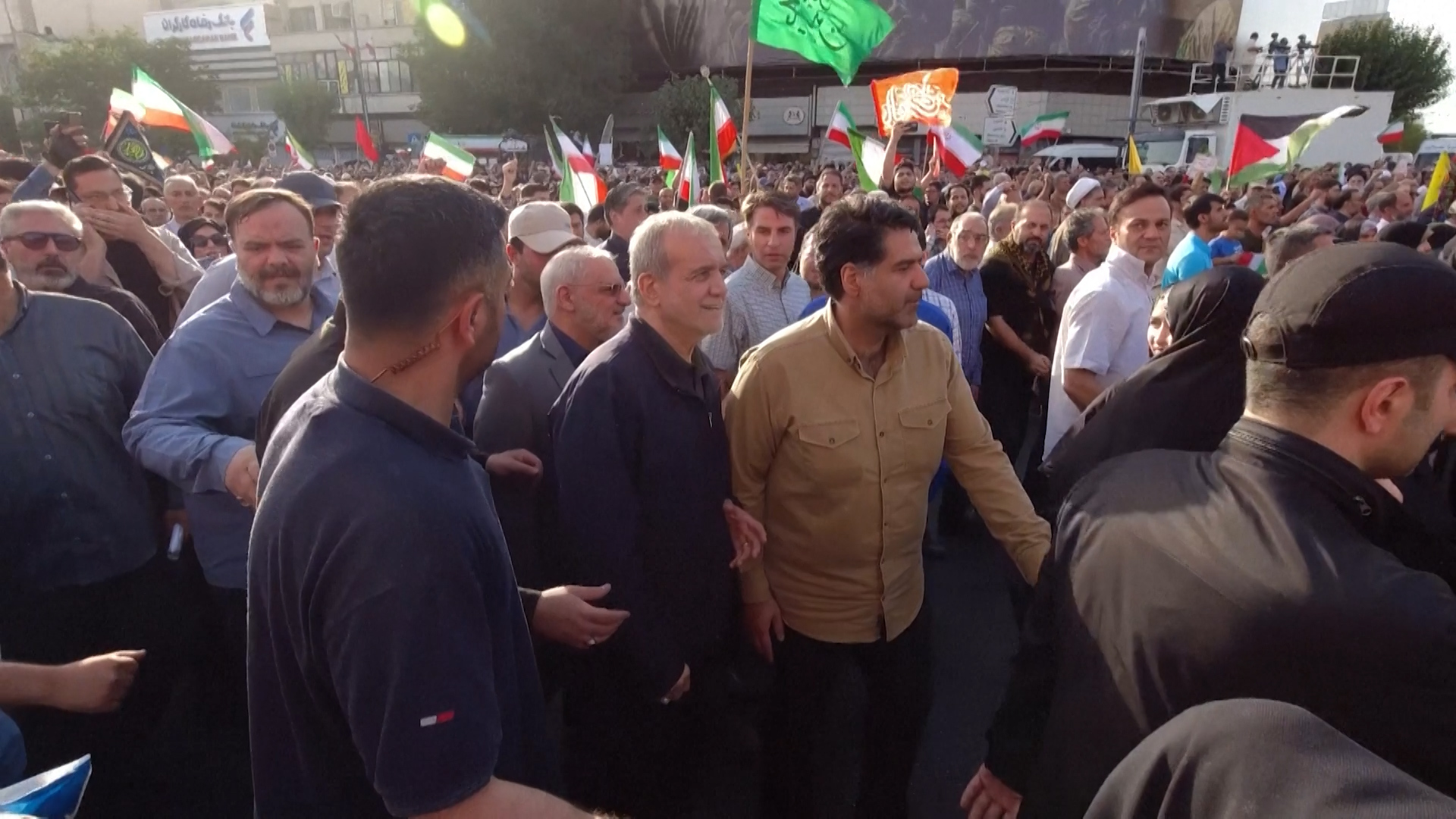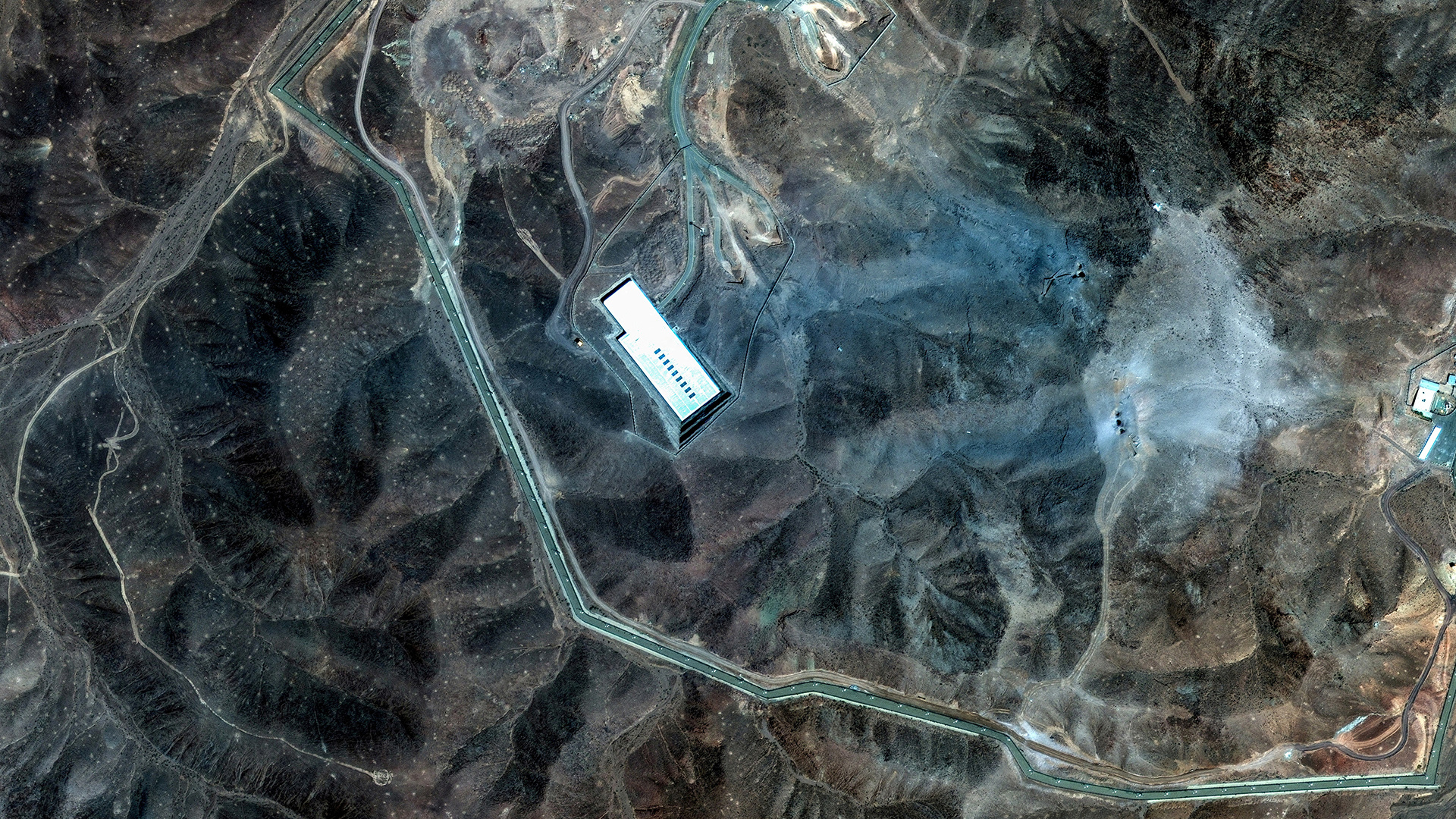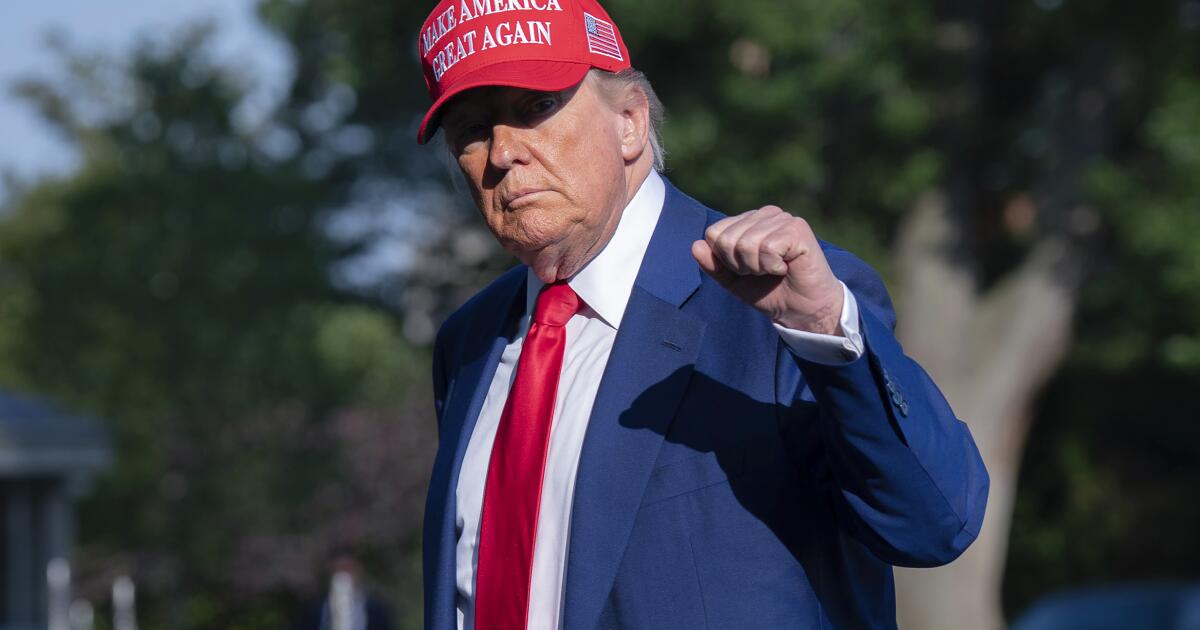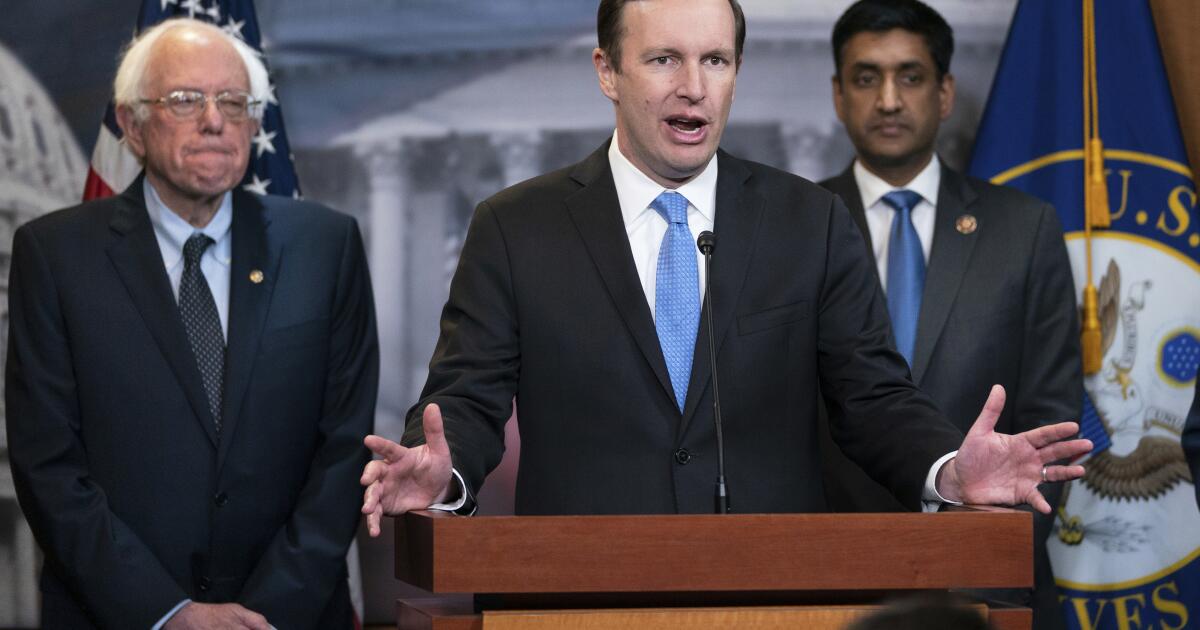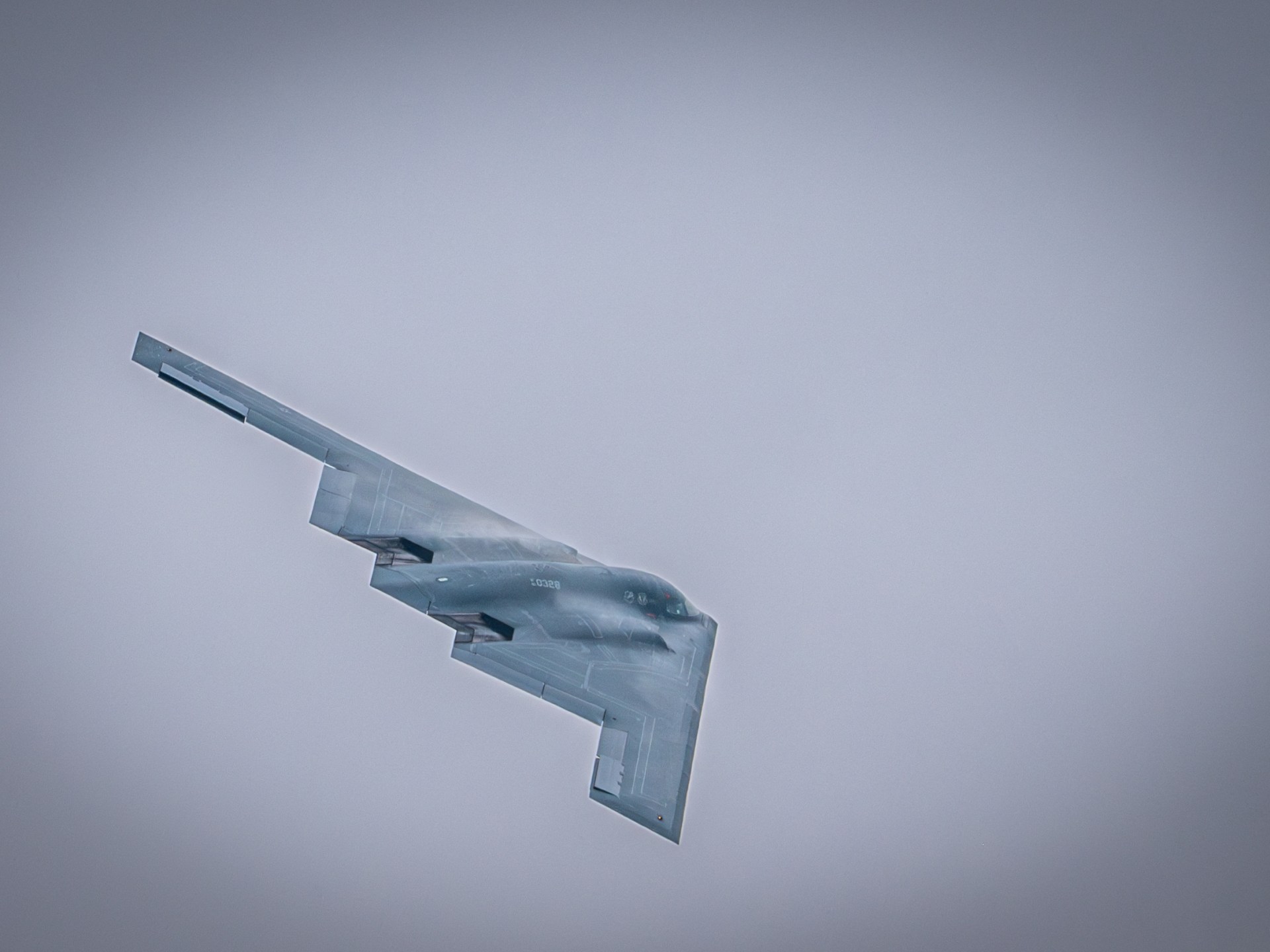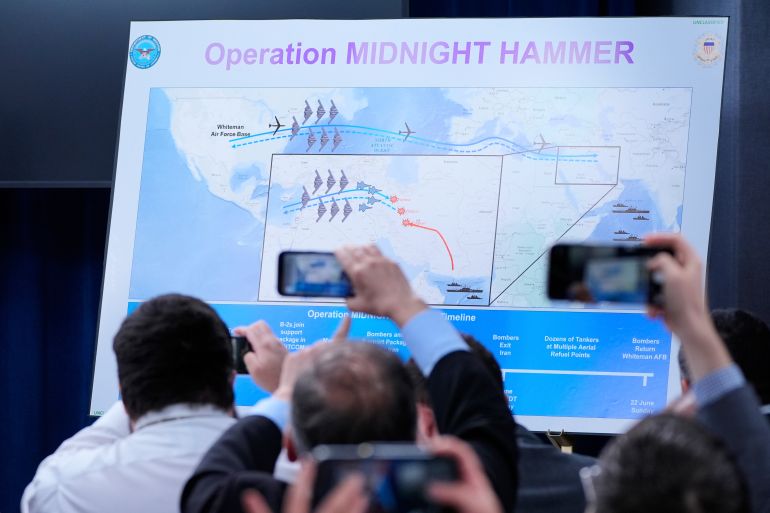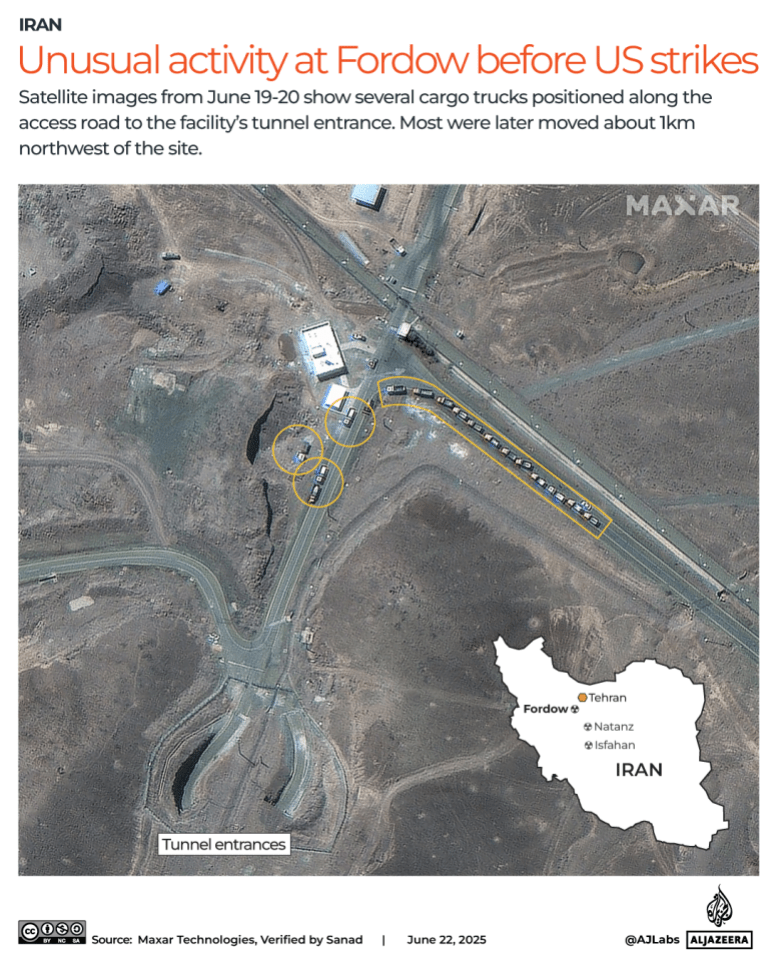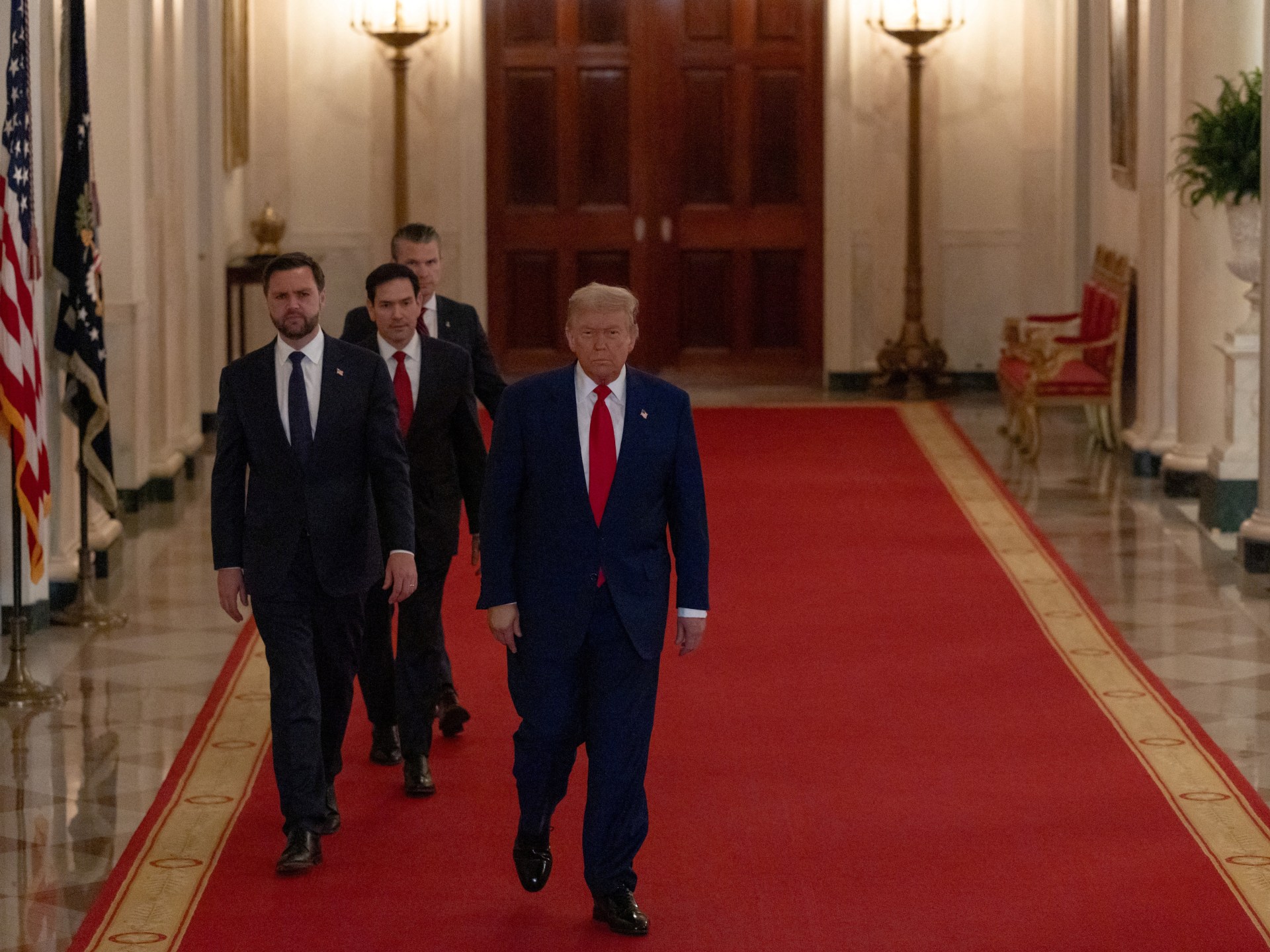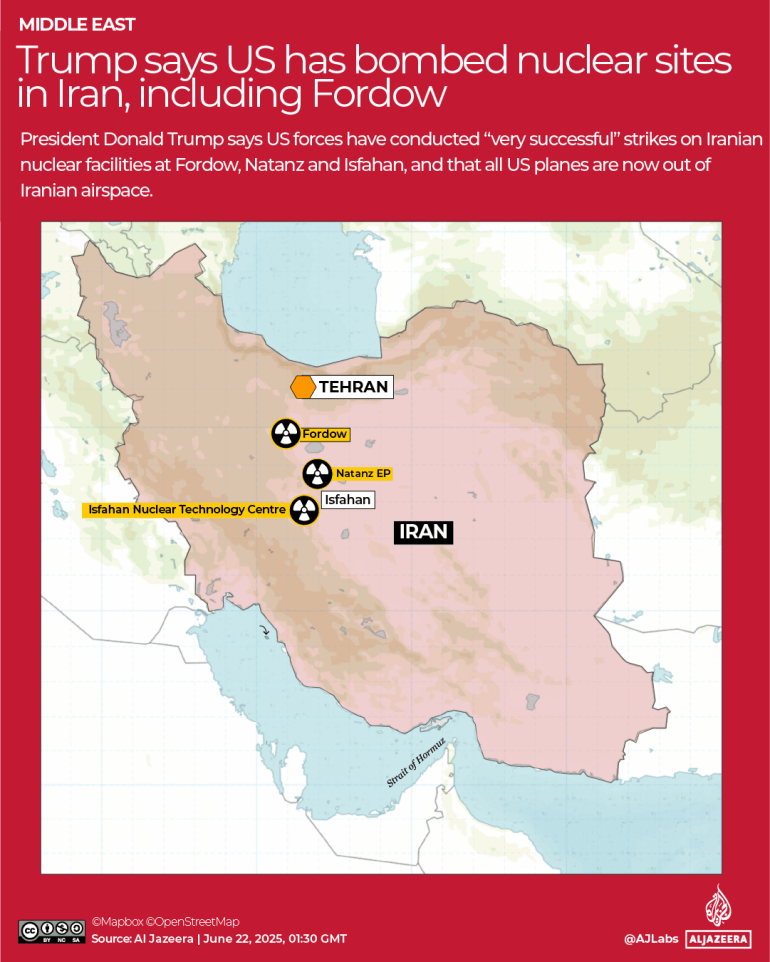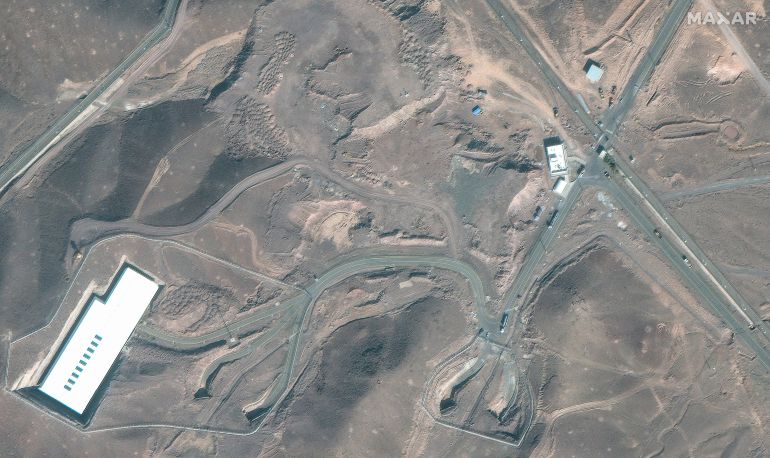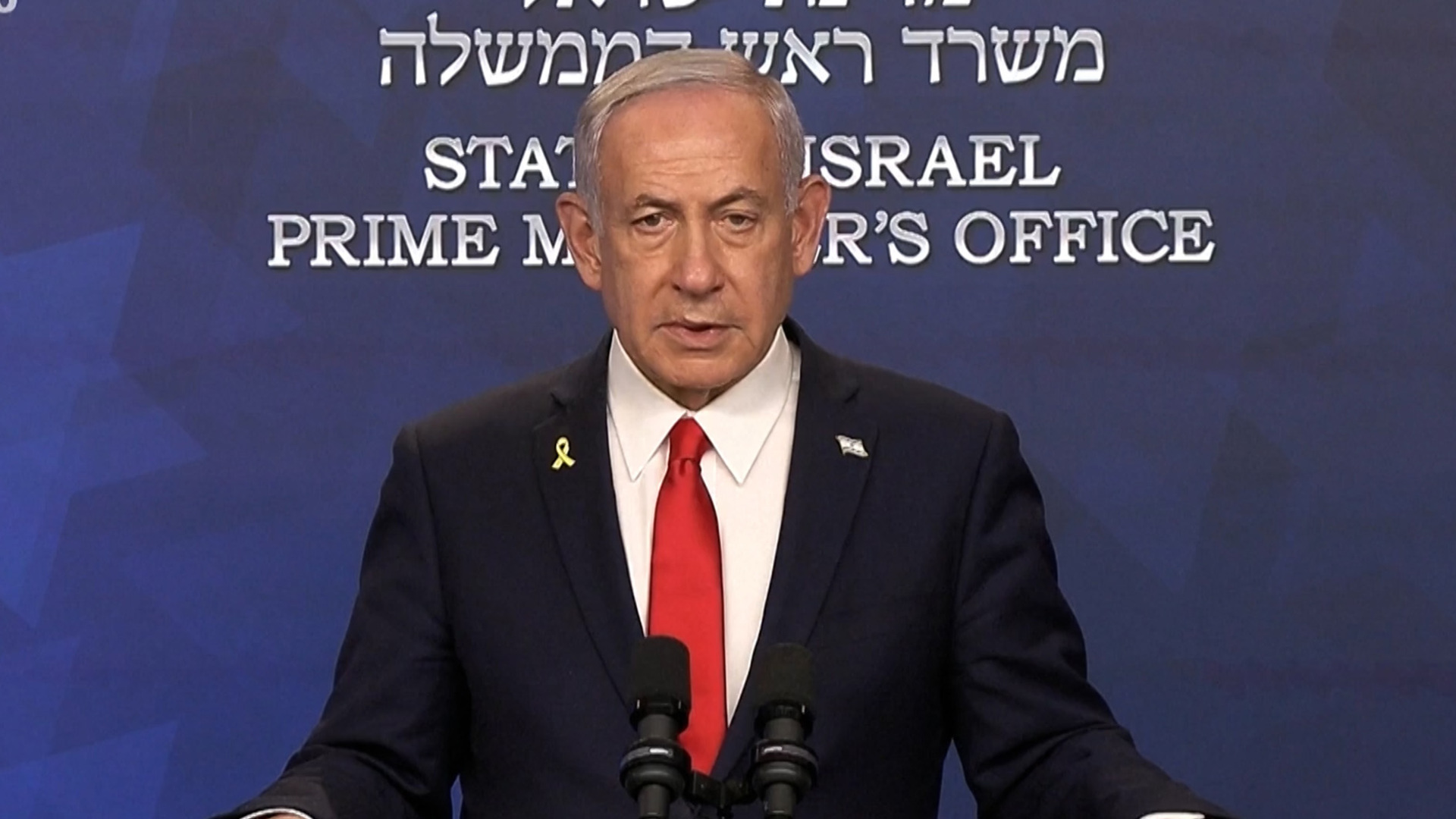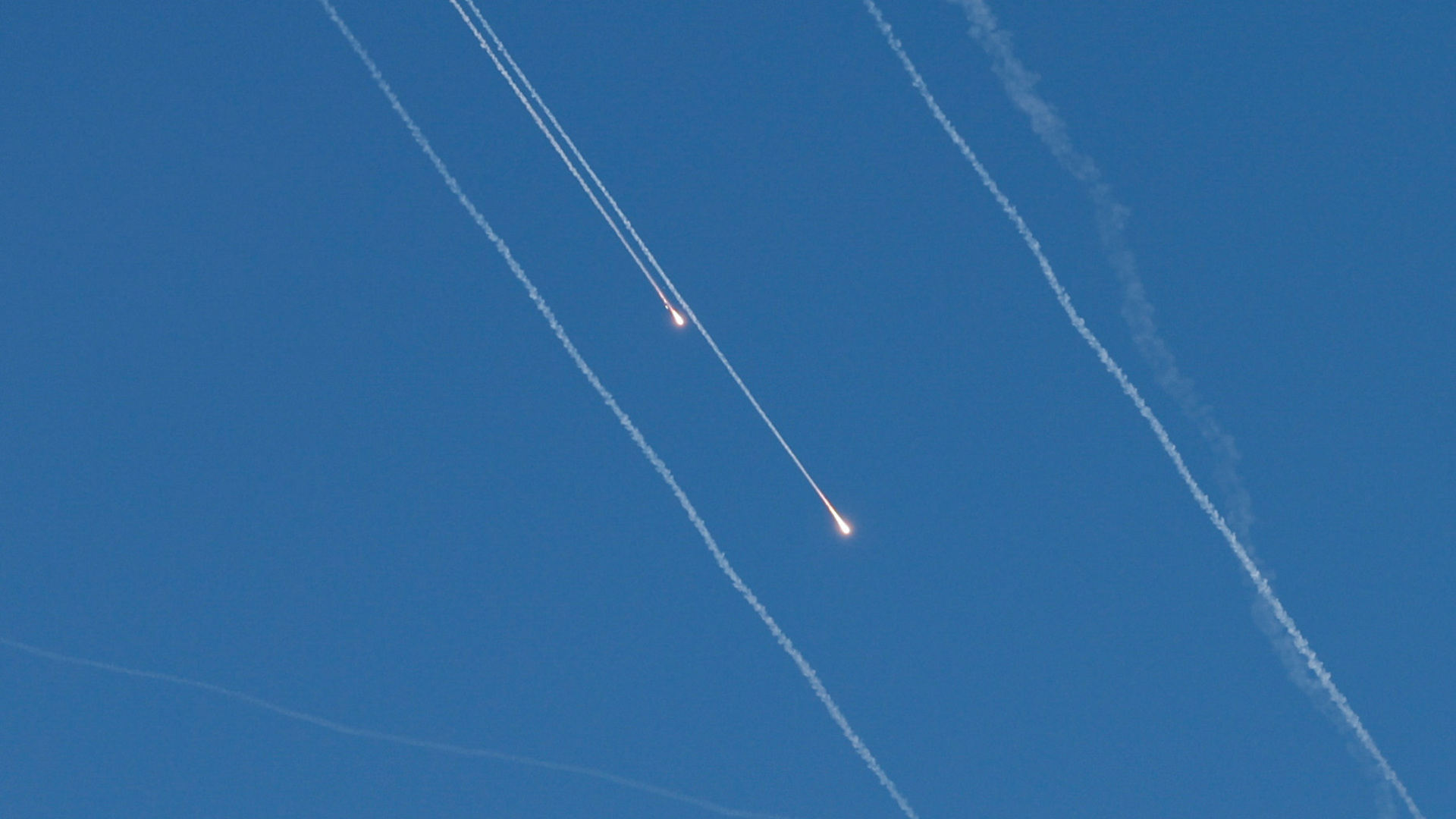US attacks Iran: How Trump rejoined ‘team’ Netanyahu | Donald Trump News
As United States President Donald Trump addressed the world on the strikes launched by his country’s military against three key Iranian nuclear sites in the early hours on Sunday, he thanked several people and institutions.
The US military, fighter pilots who dropped the bombs, and a general were among those on his list. So was one individual who is not American, and with whom Trump has had a topsy-turvy relationship: Israeli Prime Minister Benjamin Netanyahu.
Trump also said Netanyahu and he had worked like “perhaps no team has ever worked before”. Those laudatory comments represent a stark contrast from the far more crude language that Trump used for the Israeli leader just four years ago, and their public tension over Iran less than a month ago.
We track Trump’s often-love and sometimes-hate relationship with Netanyahu:
What did Trump say about Netanyahu?
In his televised address on Sunday, during the early morning hours in the Middle East, Trump thanked and congratulated Netanyahu. “I want to thank and congratulate Prime Minister Bibi Netanyahu,” he said, referring to a name the Israeli PM is widely known by.
“We worked as a team like perhaps no team has ever worked before, and we’ve gone a long way to erasing this horrible threat to Israel,” Trump said, referring to Iran’s nuclear facilities.
“I want to thank the Israeli military for the wonderful job they’ve done,” Trump said, adding praise for the US forces.
Trump warned Iran to accept what he described as “peace” but what effectively amounts to the surrender of its nuclear programme, on US terms.
“If they do not, future attacks will be far greater and a lot easier,” he said. Meanwhile, Israel remains the only country in the Middle East with a nuclear arsenal, though it has never officially acknowledged it.
The US strikes follow nine days of Israeli missile attacks against Iran, including on its nuclear facilities. Israel did not have the bombs needed to damage or destroy Iran’s most secretive nuclear site in Fordow, buried deep inside a mountain. The US, using its bunker-buster bombs, hit Fordow as well as the facilities in Natanz and Isfahan on Sunday.
Trump’s decision to align himself with Netanyahu in bringing the US into the war with Iran has split his “Make America Great Again” (MAGA) support base.
What did Netanyahu say about Trump?
After Trump announced the strikes and appreciated the Israeli leader, Netanyahu responded with warmer words than the ones the US president had used for him.
“President Trump, your bold decision to target Iran’s nuclear facilities with the awesome and righteous might of the United States will change history,” Netanyahu said in a recorded video statement.
He further said, “In tonight’s action against Iran’s nuclear facilities, America has been truly unsurpassed. It has done what no other country on Earth could do.”
“History will record that President Trump acted to deny the world’s most dangerous regime the world’s most dangerous weapons,” said Netanyahu.
The chief of the International Atomic Energy Agency (IAEA) has publicly said it does not believe that Iran was building a nuclear weapon, an assessment shared by US intelligence agencies, which also drew the same conclusion earlier this year.
However, Trump has in recent days said his hand-picked spy chief, Tulsi Gabbard, and the intelligence community’s assessment were “wrong”.
Trump’s “leadership today has created a pivot of history that can help lead the Middle East and beyond to a future of prosperity and peace”, Netanyahu said in this statement.
“President Trump and I often say: ‘Peace through strength’. First comes strength, then comes peace. And tonight, Donald Trump and the United States acted with a lot of strength,” concluded Netanyahu.
How were their ties during Trump’s first term?
Netanyahu enjoyed a close relationship with Trump during his first term in office from 2017 to 2021.
Trump recognised Jerusalem as Israel’s capital and moved the US embassy there from Tel Aviv, a long-sought symbolic victory for Netanyahu that strengthened his image domestically. Trump appointed an ambassador who was ideologically aligned with Israel’s settler movement, David Friedman, in May 2017.
In March 2019, the US president also recognised Israeli sovereignty over the occupied Golan Heights, becoming the only world leader to back Israel’s annexation of the region that is recognised internationally as a part of Syria.
In September 2020, Trump hosted the signing of the Abraham Accords, which led to normalisation of relations between Israel and four Arab states – Bahrain, the United Arab Emirates, Morocco, and Sudan.
Trump formally withdrew the US from the Joint Comprehensive Plan of Action (JCPOA) — commonly known as the Iran nuclear deal — in May 2018, through a presidential proclamation that reinstated US sanctions against Iran.
This marked a major shift from the previous US policy of implementing the JCPOA in January 2016 to curb Iran’s nuclear programme in exchange for sanctions relief. Trump declared the deal “defective at its core”, claiming it offered insufficient assurances and failed to address Iran’s missile programme and regional activities.
Why did Trump sour on Netanyahu?
In a December 2021 Axios interview with Israeli journalist Barak Ravid, Trump revealed that his relationship with Netanyahu deteriorated after the Israeli PM publicly congratulated incoming President Joe Biden on his 2020 election victory — a loss that Trump has refused to accept.
“The first person that congratulated [Biden] was Bibi Netanyahu, the man that I did more for than any other person I dealt with. Bibi could have stayed quiet. He has made a terrible mistake,” Trump said, referring to Netanyahu by his nickname. “And not only did he congratulate him, he did it on tape.”
“F*** him,” Trump said, expressing his anger.
How have their ties been since?
While the incoming Trump administration initially claimed to broker a ceasefire in the Gaza Strip, with some observers noting that he may rein in the Israeli military campaign, it soon rallied behind Netanyahu’s continuing genocidal campaign against the Palestinian people.
In a joint news conference in February this year, Trump wildly proposed that the US should “take over” the Gaza Strip, redevelop it, and relocate Palestinians — a plan that Netanyahu publicly endorsed as “nothing wrong”.
Netanyahu also said he was “committed to US President Trump’s plan for the creation of a different Gaza”. Later that month, the US approved $2.5bn worth of arms sales to Israel, including bombs and drones.
In March, Israel resumed major air attacks in Gaza after negotiations over the release of captives collapsed. The White House confirmed that Israel had consulted Trump before the attacks.
On Iran, meanwhile, Trump’s position has seesawed from alignment with Netanyahu to his own distinct positions.
April 12-June 13, 2025: The US led back-channel nuclear negotiations with Iran, mediated by Oman.
May: Trump stated during his Gulf tour that the US was in “very serious negotiations” with Iran and “getting very close” to a nuclear deal, signalling openness to diplomacy. On May 28, Trump said he told Netanyahu to hold off on any strike against Iran to give his administration more time to push for a new nuclear deal. He told reporters at the White House that he relayed to Netanyahu a strike “would be inappropriate to do right now because we’re very close to a solution”.
June 11-12: The IAEA said Iran had not been transparent enough in its nuclear programme, and that elements of its approach were in violation of the country’s safeguards agreement with the United Nations nuclear watchdog. The US began evacuating its regional embassies. Tensions surged as Trump stated that diplomacy was stalling and hinted at serious consequences if no deal was reached.
June 13: Israel launched massive air strikes on Iranian nuclear and military sites, killing key nuclear scientists, scholars, and top military commanders.
In the initial US reaction to Israeli attacks on Iran, Marco Rubio, the secretary of state, called the strikes “unilateral” and said Washington was “not involved in strikes against Iran and our top priority is protecting American forces in the region”.
The US-Iran talks over a nuclear deal were suspended. Trump admitted that he was aware of Israel’s plans to attack Iran.
June 19: Trump, after nearly a week of stalled talks and Israeli attacks, signalled support for Israel’s military campaign, though keeping a diplomatic track open for talks with Tehran.
June 20: The US president set a two-week ultimatum for Iran to negotiate the nuclear deal.
June 21: Trump ordered US air strikes on Fordow, Natanz, and Isfahan nuclear facilities, coordinating with Israel. He declared them “completely obliterated”.
